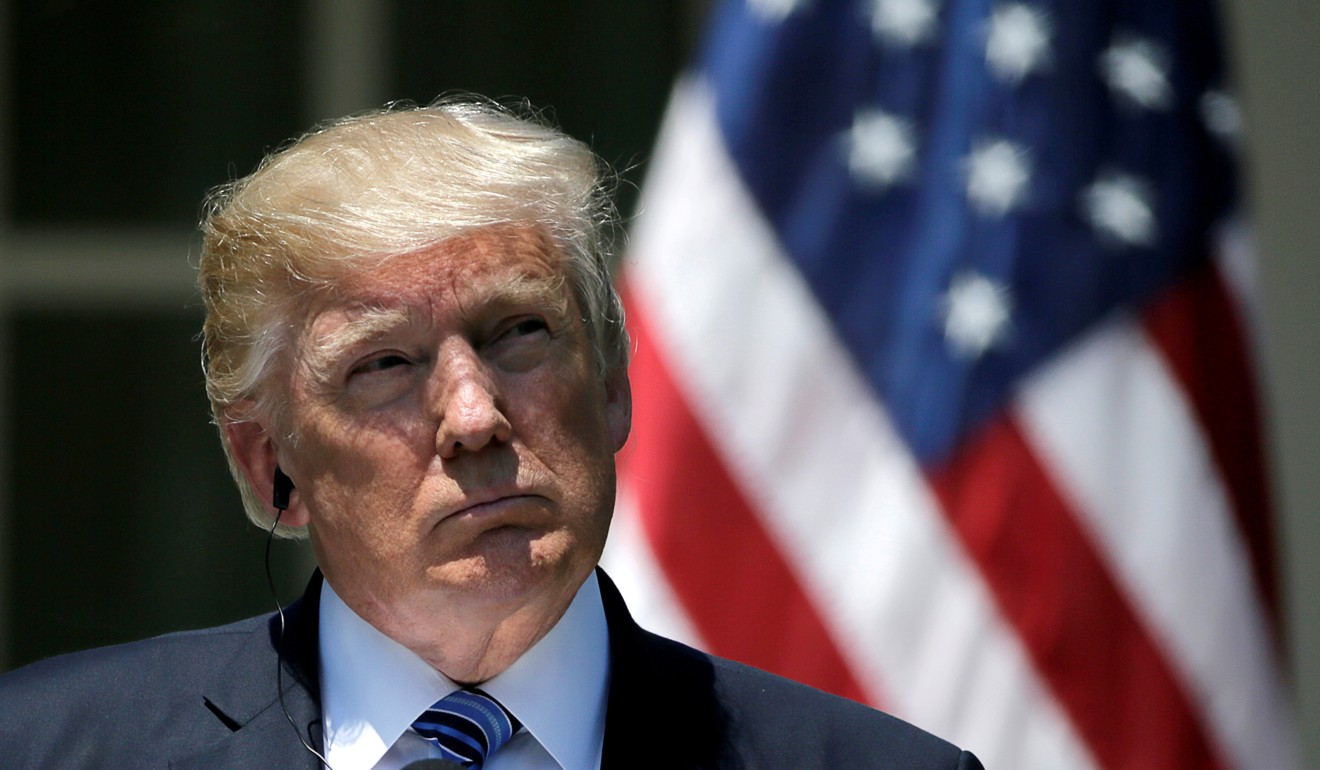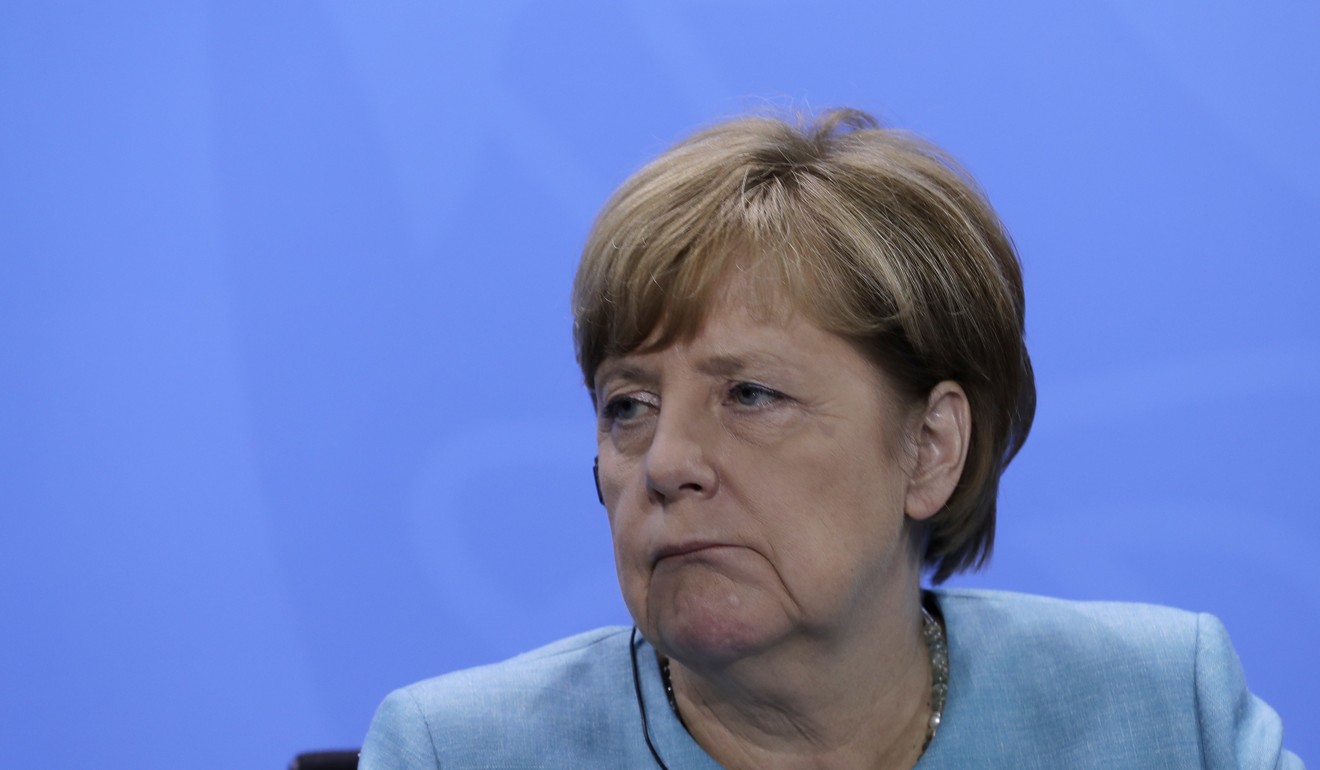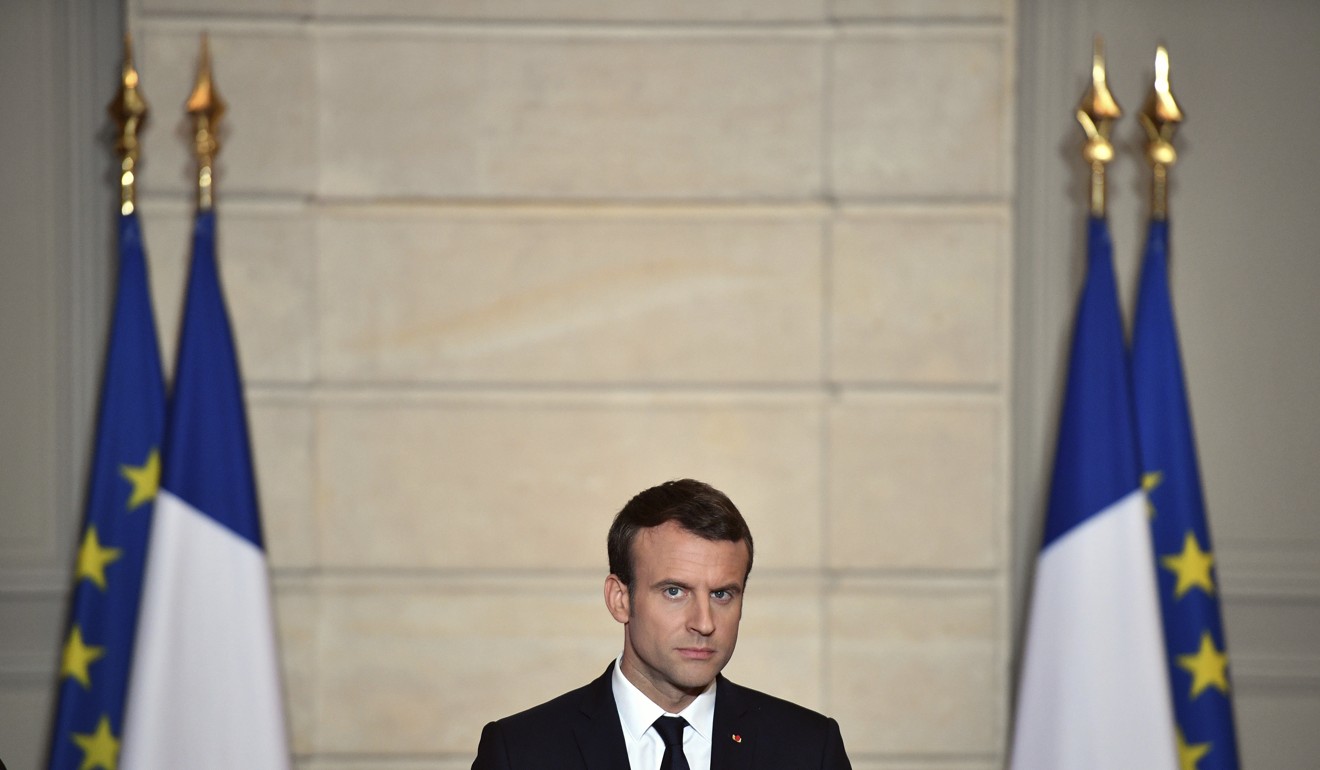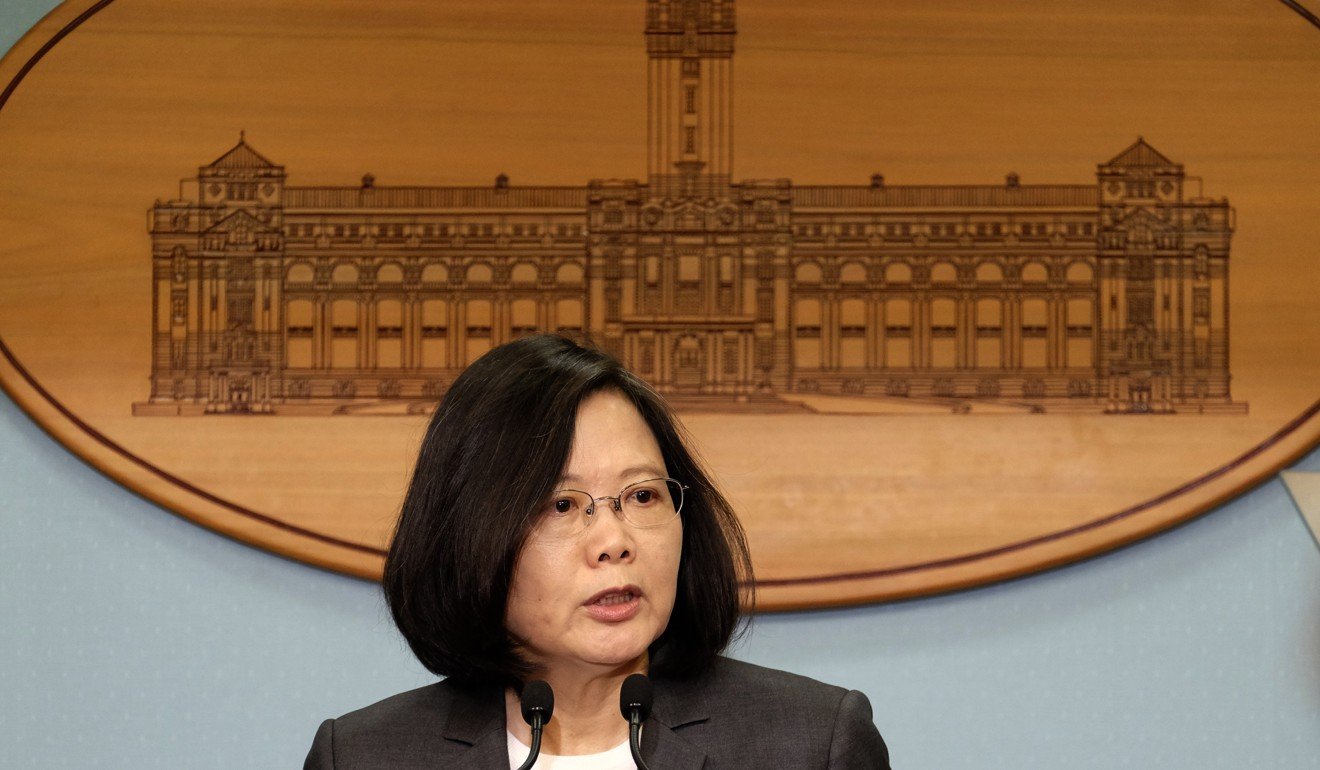
World leaders call for release of Liu Xiaobo’s widow but stop short of hard line
Western governments have called on China to free the widow of Liu Xiaobo after the Nobel laureate’s death on Thursday, but most stopped short of denouncing Beijing’s treatment of its most prominent political prisoner.
The United States, Germany, Britain, France and the European Union all urged China to release Liu Xia from house arrest and allow her to leave the country. Her husband is the first Nobel laureate to die in custody since 1938, when pacifist Carl von Ossietzky died in a hospital under Nazi Germany.
Liu Xiaobo was serving an 11-year jail term on subversion charges for his part in drafting pro-democracy manifesto “Charter 08”. He was only released on medical parole after being diagnosed with late-stage liver cancer in May. His requests to be treated overseas were repeatedly rejected by Beijing.
In its statement, Germany demanded China “quickly, transparently and plausibly answer the question of whether the cancer could not have been identified much earlier”.
British Foreign Secretary Boris Johnson went further, saying it “was wrong” for Beijing to deny Liu the right to be treated abroad.
Leaders of the US, Germany, France and Norway paid tribute to Liu – who won the Nobel Peace Prize in 2010 – but their statements were limited to expressions of sadness and condolences.
US President Donald Trump was “deeply saddened” by Liu’s death, a White House statement said. But he was earlier criticised for praising President Xi Jinping as “a great leader”, “a very talented man” and “a very good man” just hours after Liu died in custody, during a press conference in Paris with French President Emmanuel Macron. Taiwanese President Tsai Ing-wen meanwhile issued a statement on social media calling for Beijing to push political reform.
But as some countries were restrained or stayed silent on the activist’s plight, other members of the international community, such as the Norwegian Nobel Committee, issued stronger statements. Chairwoman Berit ReissAndersen, said Beijing “bears a heavy responsibility for [Liu’s] premature death”.
“It is a sad and disturbing fact that the representatives of the free world, who themselves hold democracy and human rights in high regard, are less willing to stand up for those rights for the benefit of others,” she said.
Steve Tsang, director of the SOAS China Institute in London, said the reluctance of key Western powers to stand up for Liu and his family was a sign of the times. “That the Western democracies have by and large not taken as robust a stance over Liu as they should or would have done had this happened in an earlier time reflects how the world has changed, and how the rise of China has now caused [these] governments ... to refrain from taking an appropriately robust stance over human rights abuses in China,” Tsang said.
“This is most regrettable but it reflects realpolitik.”
But the international reaction nonetheless drew a fiery response from Beijing. Foreign ministry spokesman Geng Shuang chastised foreign officials for “making improper comments on Liu Xiaobo’s death of illness”, adding that China had lodged “stern representations” with their countries, including the United States.
Kristin Shi-Kupfer, of the Mercator Institute for China Studies, said it was “very unfortunate” that there had not been stronger international calls for Liu’s release. “Liu’s case indicates that it will become more difficult to make China react to international demands and calls in the realm of human rights,” she said. “Creating a linkage between human rights and trade issues, for instance, might be the only way to get concessions from Beijing. However, given China’s increasing importance as a global power, it is highly questionable if Beijing would be willing to compromise.”
There were no words from British Prime Minister Theresa May, Canada’s Prime Minister Justin Trudeau, Australian Prime Minister Malcolm Turnbull, or from Japan’s Prime Minister Shinzo Abe.
Dr Jonathan Sullivan, director of the China Policy Institute and an associate professor at the School of Politics and International Relations at the University of Nottingham, said the muted reaction to the death of a Nobel laureate in custody was a powerful symbol of the new state of global affairs.
“China’s economic and diplomatic power has effectively neutered Western ‘values led’ foreign policy towards China,” he said. “Beijing has effectively forced Western countries to accept its position that China’s affairs are its own business and it will not accept any interference.”
As a result, Western governments are now pre-emptively “self-censoring”, he said.
“Curiously it is Taiwan, which probably has the most to lose, that has emerged as the government most dedicated to ‘Western values’ ... [and] Tsai Ing-wen has issued the strongest statement about Liu.”
If Taiwan, with so much to lose, refuses to compromise its democratic values, Sullivan said, “what does that say about those other leaders?”
Here is what some of those foreign heads of state, or their governments, have said following Liu’s death:
UNITED STATES

White House statement: “President Donald J Trump was deeply saddened to learn of the passing of Nobel Peace Prize laureate and prominent Chinese political prisoner Liu Xiaobo. The president’s heartfelt condolences go out to Liu Xiaobo’s wife, Liu Xia, and his family and friends. A poet, scholar, and courageous advocate, Liu Xiaobo dedicated his life to the pursuit of democracy and liberty.”
Statement from Secretary of State Rex Tillerson: “My heartfelt condolences go out to Liu’s wife, Liu Xia, and all of his loved ones. I call on the Chinese government to release Liu Xia from house arrest and allow her to depart China, according to her wishes.”
GERMANY

A spokesman for Chancellor Angela Merkel quoted her as saying: “I mourn Liu Xiaobo, the courageous fighter for civil rights and freedom of opinion. Deep condolences to his family.”
Germany’s Foreign Minister Sigmar Gabriel said he deeply regretted that China did not let Liu and his wife Liu Xia travel to Germany for treatment.
“She and her brother, Liu Hui, should immediately be allowed to leave for Germany or another country of their choice if they wish to ... China now has the responsibility to quickly, transparently and plausibly answer the question of whether the cancer could not have been identified much earlier.”
BRITAIN
Statement from Foreign Secretary Boris Johnson: “Liu Xiaobo should have been allowed to choose his own medical treatment overseas, which the Chinese authorities repeatedly denied him. This was wrong and I now urge them to lift all restrictions on his widow, Liu Xia.”
FRANCE

Tweet from President Emmanuel Macron: “Tribute to Liu Xiaobo, Nobel Prize Peace Laureate, great freedom fighter. Thoughts and support to his relatives and his wife Liu Xia.”
Statement from French Foreign Minister Jean-YvesLe Drian: “I offer my condolences to all his loved ones. France had repeatedly called for his release and we hope that the Chinese authorities will guarantee freedom of movement for his wife, Liu Xia, his family and his loved ones.”
NORWAY
Statement from Prime minister Erna Solberg: “It is with deep grief that I received the news of Liu Xiaobo’s passing. Liu Xiaobo was for decades a central voice for human rights and China’s further development. My thoughts go now to his wife, Liu Xia, and his family and friends.”
Berit Reiss-Andersen, chairman of the Norwegian Nobel Committee, said China “bears a heavy responsibility for [Liu’s] premature death” and criticised Western governments for not being vocal enough in support before his death.
“The news of Liu Xiaobo’s serious condition was met in part with silence and belatedly, hesitant reactions worldwide …It is a sad and disturbing fact that the representatives of the free world, who themselves hold democracy and human rights in high regard, are less willing to stand up for those rights for the benefit of others.”
EUROPEAN UNION
Statement from the EU Commission: “We appeal to the Chinese authorities to allow his wife, Ms Liu Xia and his family to bury Liu Xiaobo at a place and in a manner of their choosing and to allow them to grieve in peace. We call on the authorities to remove all restrictions on the movement and communications of his family members and allow Ms Liu Xia and her brother Mr Liu Hui to leave China, if they wish to do so.”
CANADA
Statement from Foreign Minister, Chrystia Freeland: “I offer my sincere condolences to the family and friends of Mr Liu and to his many supporters around the world. In particular, my thoughts go to Mr Liu’s wife, Liu Xia, herself a tremendous symbol of courage and poise, who remains under house arrest. We continue to call for the release of all political prisoners.”
JAPAN
Chief Cabinet Secretary Yoshihide Suga expressed “sincere condolences” and said Japan would closely watch human rights in China.
Foreign Minister Fumio Kishida was vague on Japan’s position on Liu Xia
“In respect of [Liu’s] wife, we think [China] should act appropriately from the standpoint of freedom, respect for basic human rights and the rule of law.”
UNITED NATIONS
UN Secretary-General Antonio Guterres said he was deeply saddened by the death of Liu and expressed his condolences.
TAIWAN

Statement from President Tsai Ing-wen: “We hope that the Chinese authorities can show confidence in engaging in political reform so that the Chinese can enjoy the God-given rights of freedom and democracy. This will be a turning point in cross-strait relations. The Chinese dream is not supposed to be about military might. It should be about taking ideas like those from Liu Xiaobo into consideration. Only through democracy, in which every Chinese person has freedom and respect, can China truly become a proud and important county.”
-
-

